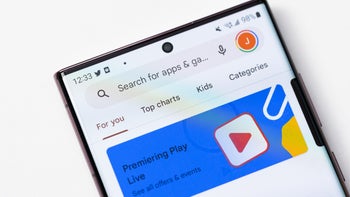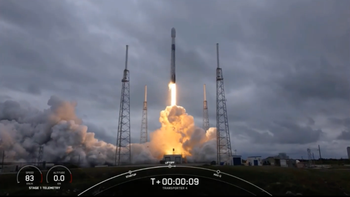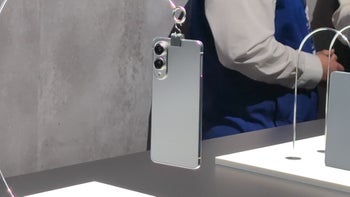Google allegedly paid game developers to block Play Store competition

Reuters reported on Thursday that to prevent big-name game developers from competing with the Play Store Store by opening their own app storefronts, Google paid 24 app developers huge sums of money. For example, mentioned in a court filing cited by the report was an agreement made by Google to pay game developer Activision Blizzard the cool sum of $360 million over three years.
Google allegedly agreed to pay Activision $360 million over three years to not compete with the Play Store
The deal between Google and Activision was made after the latter allegedly told Google that it was starting its own app store. The information was discovered in an unredacted version of lawsuit filed by Fortnite developer Epic Games back in 2020. Epic stated that Google knew paying off Activision "effectively ensured that (Activision) would abandon its plans to launch a competing app store." Epic goes on to say that the deal between Activision and Google lowers the quality of service in the Play Store while increasing prices.

Fortnite developer Epic Games accuses Google of being anti-competitive
The court filing also said that Google paid Riot Games, a unit of China's Tencent Holdings Ltd., a sum of $30 million over a one-year period in order to prevent the gaming company from competing with the Play Store. Epic's two-year old suit accuses Google of using anti-competitive behavior to run the Play Store.
Google kicked Fortnite out of its Android app storefront in 2018 after Epic included a link to its own in-app payment platform in the game violating Google's policies. This was an attempt by the developer to bypass Google's payment platform which collects up to 30% of in-app revenue. Sound like a familiar story? It's the same one that led to the Epic v. Apple lawsuit which has now moved on to appeals court. If the case between Epic and Apple goes all the way to the Supreme Court, a final ruling might not be released until 2025.
Epic's goal in calling out the payments made by Google to game developers is to show that the search giant is anti-competitive when it comes to the distribution of Android apps. Google denies this and says paying the developers is a way to maintain healthy competition. The payments are part of a plan known internally inside Google as "Project Hug." Google adds that some of the payments to developers were payments for YouTube postings and credits toward ads on Google's advertising platform and cloud services.
Here's the major difference between the App Store and the Play Store
Google was supposedly concerned because its own forecasts showed that it would lose billions in app sales if game developers ended up fleeing the Play Store for competing storefronts. Other big-name developers reportedly signed such deals with Google to receive payments while deciding not to compete with the Play Store; this list include Nintendo, Ubisoft, meditation app Calm, and education app company Age of Learning.
If there is a major difference between Apple's App Store and the Google Play Store in terms of anti-competitive behavior, it's that Google allows users to sideload apps. In this case, Google allows Android users to download apps from third-party app stores. Apple does not allow those using an iPhone or iPad to sideload any apps. While this is good for security, it does give Apple complete control over the apps that are installed on its devices, unlike Google.
Both Apple and Google have been on the hot seat over the last few years over possible anti-competitive activities related to both of their respective app storefronts.
While Fortnite is still unavailable directly from the Play Store, it can be installed on an Android device using the Epic Games app found in the Samsung Galaxy Store. It can also be played through the browser on your Android device at epicgames.com.












Things that are NOT allowed: